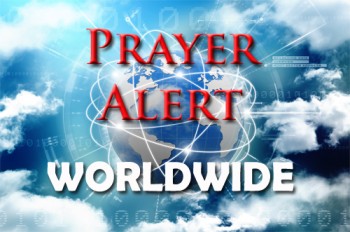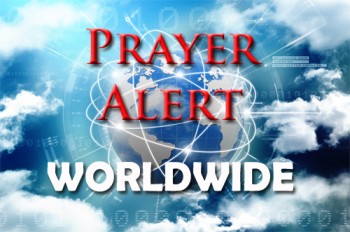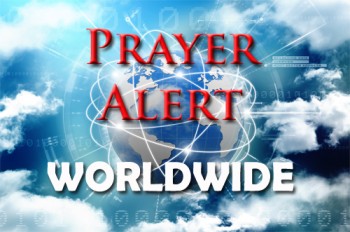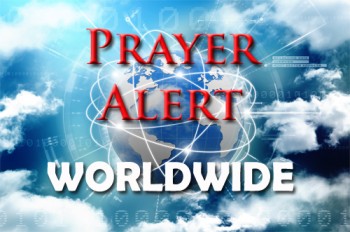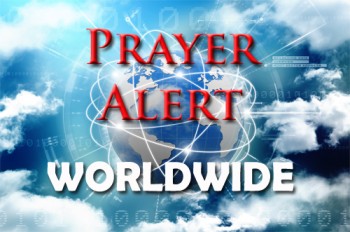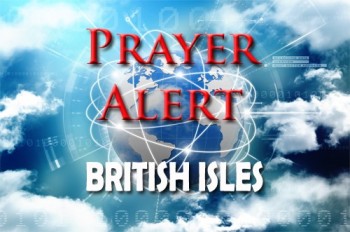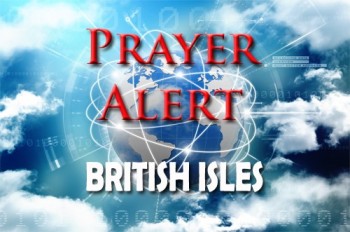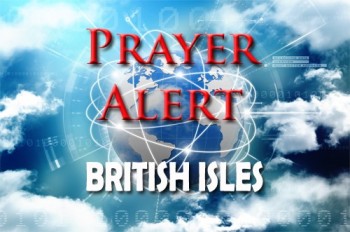
David Fletcher
David Fletcher is Prayer Alert’s Editor.
He is part of a voluntary team who research, proof-read and publish Prayer Alert each week.
If you would like to make a donation towards our running costs, please click here.
Many observers are saying that the fresh wave of protests across Sudan could be pivotal. On 30 June at least seven were killed and 200 injured in clashes when thousands took to the streets demanding that the ruling military council hand over power to a civilian government. For Christians, the revolution initially brought hope of religious freedom, but now there is a keen sense of disappointment. A local Christian said, ‘If there is more of a democracy, hopefully, prayerfully there will be more freedom to be able to evangelise, and to share the message of Jesus’ love. What can we do? We need to be praying for the situation in Sudan.’ Pray for definitive peace and stability between the people and military commanders who continue to vie for power. Ask God for government leaders to rule with integrity and justice. Pray for the church to grow spiritually strong despite intense suffering and persecution.
Last week we praised God for the peaceful anti-extradition bill rallies in city streets. This week violent demonstrators stormed the legislative building in protest against the extradition bill. Many Christians feared for their lives in light of the now-suspended bill, due to China having some of the most restrictive religious freedom laws on earth. According to the law, religious assemblies in public areas are not deemed illegal, so if people sing hymns together, it could actually work as a protection and guarantee that they stay safe. But this week people started to sing ‘Sing hallelujah to the Lord’ to protect themselves in chaotic scenes of huge groups storming into government buildings, painting graffiti on the walls and even draping the front lectern in a British Hong Kong flag used during the colonial period. Amid the political turmoil, Hong Kong’s many Christian leaders have called for peace and progress. Pray for people with different positions and opinions to listen to each other.
A government campaign to vaccinate 40 million children under the age of five against polio had to be suspended following serious attacks on workers and police in just one week. A policeman protecting polio workers was killed in Bannu, and a polio worker was injured with a knife in Lahore by a man refusing to allow his child to be vaccinated. Two others connected with different polio teams were also killed, and one man was seriously wounded. Further attacks on staff in Sindh, Balochistan and Punjab were reported. The violence was preceded by a series of rumours intended to derail Pakistan’s campaign to eradicate the disease. On 22 April several thousand children were taken to hospital in north-west Pakistan by panicked parents after a video circulated on Facebook in which a man attested that children were falling sick following vaccinations. A mob set alight a health centre following the same rumour.
Donald Trump became the first sitting US president to enter North Korea in an ‘impromptu’ meeting after he left the G20 summit. Later he said that he and Kim would restart nuclear negotiations and he invited Kim to the US ‘when the time is right’. He added, ‘Great progress has been made, great friendships have been made and this has been, in particular, a great personal friendship.’ But the ‘friendship’ faltered four days later when North Korea accused the US of being ‘hell-bent on hostile acts’ and ‘obsessed with sanctions’. When Pyongyang's delegation visited the United Nations, North Korea also accused Washington of attempting to ‘undermine the peaceful atmosphere’ on the Korean peninsula. This indicates a return to the angry exchanges which have marred relations in recent times. We need to pray for the teams representing the US and North Korean leaders who will be meeting over the coming weeks to resume the talks which collapsed four months ago.
China, Mexico and Russia are just some of the countries represented at this year’s G20 summit which are failing to enforce their laws and promises against corruption, and in particular foreign bribery. International bribery is one of the many ways in which corruption heavily impacts sustainable development and economic growth. It hinders fair access to markets as well as progress on today’s most pressing issues like education, healthcare, gender equality and the climate crisis. To make economic development work for all, anti-corruption should be mainstreamed into every decision and policy. G20 governments must enable clean contracting provisions, publish open registers of beneficial owners of companies, and create strong whistle-blower protection. G20 leaders must focus on implementing their commitments and not feel tempted just to keep making more promises.
An estimated two million people filled Hong Kong streets in protests against the government, which had been pursuing an extradition agreement that could have sent activists, advocates and even foreign nationals to mainland China for legal proceedings. But even after the bill was pulled, the protests not only continued: they have grown, and through the ongoing protest, an unlikely song has rapidly become the unofficial anthem by tens and hundreds of thousands. The uniting song is ‘Sing Hallelujah to the Lord’. A quarter of the entire population sang the anthem. Praise the Lord, Hong Kong! Praise the Lord, indeed!
John Earnest walked into a California synagogue carrying a semiautomatic rifle. Rabbi Goldstein was preparing for the day’s prayer and heard gunshots. He found himself staring down the barrel of a gun. Earnest had just shot someone in the foyer. ‘I have a fraction of a second to decide what to do’, he recounted. ‘Do I hide? The gun is pointing at me. Do I think about others?’ His mind raced. When he turned to herd the children to safety the gunman fired at him, blowing off his fingers. His granddaughter cried, ‘Grandpa, why are you bleeding?’ The gunman fired into a side room full of people but only two were slightly wounded. As the rabbi turned back, the gunman’s rifle jammed. Two congregation members chased him out of the building. A short time later, he inexplicably phoned 911 and reported the shooting.
‘According to Proverbs 14:34, we agree that righteousness exalts a nation, so we speak righteousness into every aspect of government. We decree and declare that Kingdom values (well-being, health, safety and prosperity) will be established over all other values in the UK. We thank You, Lord, for the expectation that people are treated justly - economically, educationally and socially - irrespective of class or ethnicity. We thank You for those who are concerned over housing, healthcare and the environment, and for the roots of social justice and concern that lie within Your Kingdom. In this season of the impossible becoming possible, we agree with God’s promise, “You shall declare a thing and it shall be established” (Job 22:28). We declare that the words of God’s people in this nation will release hope and peace, and build Kingdom purposes in our land. We speak mercy, truth, righteousness and Godly wisdom into all spheres of government.’
Certain occupations can be more dangerous than others due to the nature of work that is carried out. The Health and Safety Executive reported that agriculture, forestry and fishing are the riskiest industry sector. One that consistently tops the list of hazardous industries is farming. Although no figures are yet available for 2019, 33 people died in the 12 months up to March 2018. Farming is more than five times more risky than the second such industry. Farmers had the most fatal injuries, and 48% of those killed were over 65. Almost twice as many self-employed farmers were killed as employees.
The Bishop of St Albans said arms sales to Saudi Arabia should be suspended, after a court of appeal ruled that the Government failed to assess adequately the risk of arms being used in violation of international law. He said, ‘We need reassurance that the Government has adopted appropriate safeguards to protect civilians in future. Aid is still needed in Yemen, and I hope international partners will work with the Government to deliver this.’ Campaign Against Arms Trade said the Government didn’t enforce its own rules, which state that military export licences should not be granted if there is a clear risk that arms might be used in violation of international humanitarian law. Christian Aid said that the Saudi-UAE-led coalition was being propped up by UK government military advisers, arms exports, and ongoing political and technical support. The Government plans to appeal against the court’s ruling.

